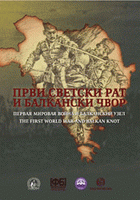Европске силе и великонационализми на Балканском полуострву почетком XX века
European Powers And Nationalisms At Balkan Peninsula At The Beginning Of 20th Century
Author(s): Nikola B. PopovićSubject(s): History
Published by: Institut za savremenu istoriju, Beograd
Keywords: European powers; Turkey; the liberation war; unification; alliance; national state
Summary/Abstract: The relationship of the European powers to the nationalism of the Balkan peoples was determined by their relationship to the Ottoman Empire. The Western powers – Britain, France, Austria-Hungary, then Germany and Italy, viewed the so-called Eastern Question primarily through the threat of the Russian Empire squeezing out Turkey from the European continent, and came into the possession of Constantinople and the straits. Nationalist movements of the Balkan nations rebelled and led uprisings and liberation wars in order to create national states. Whether such endeavours saw (and had) Russia as an ally determined their relationship with European powers. Nationalisms of Balkan people, except Serbian, have created plans for the formation of their big states in which the areas that were not predominantly inhabited by their own peoples were to be included. None of the Serbian governments, whether principalities, kingdom or Republic of Serbia have ever created a plan for „Greater Serbia“, but has planned and led the liberation war and set a goal to include within the Serbian state the territories where Serbs were the majority.
Journal: Zbornik radova Instituta za savremenu istoriju
- Issue Year: 2014
- Issue No: 12
- Page Range: 43-50
- Page Count: 8
- Language: Serbian
- Content File-PDF

